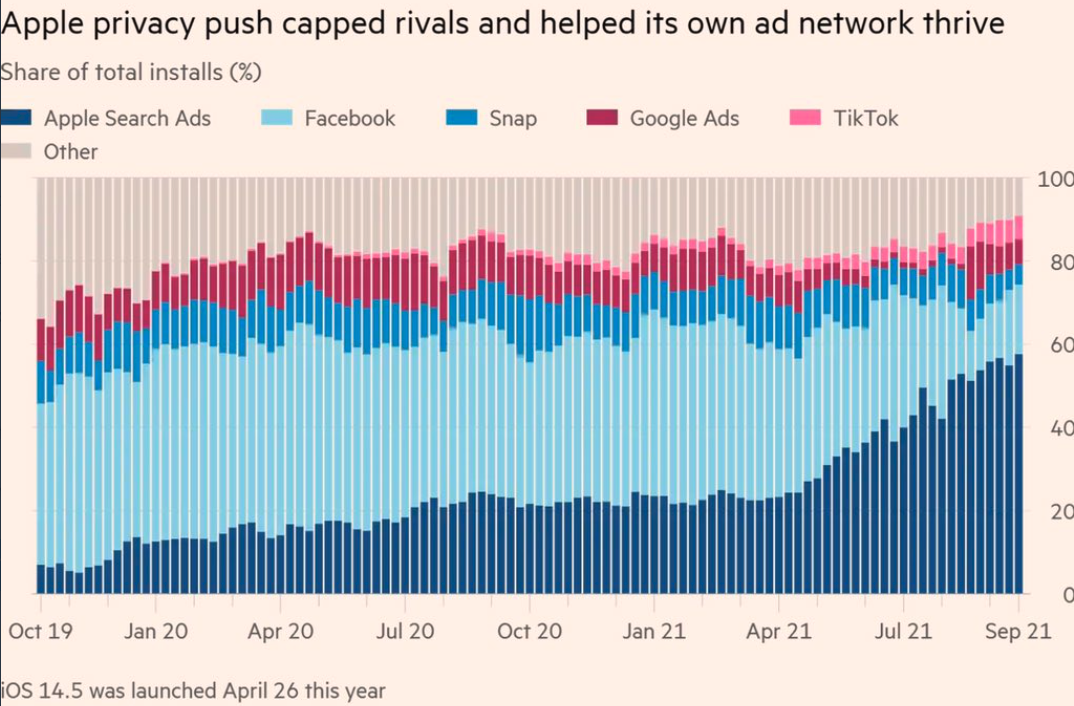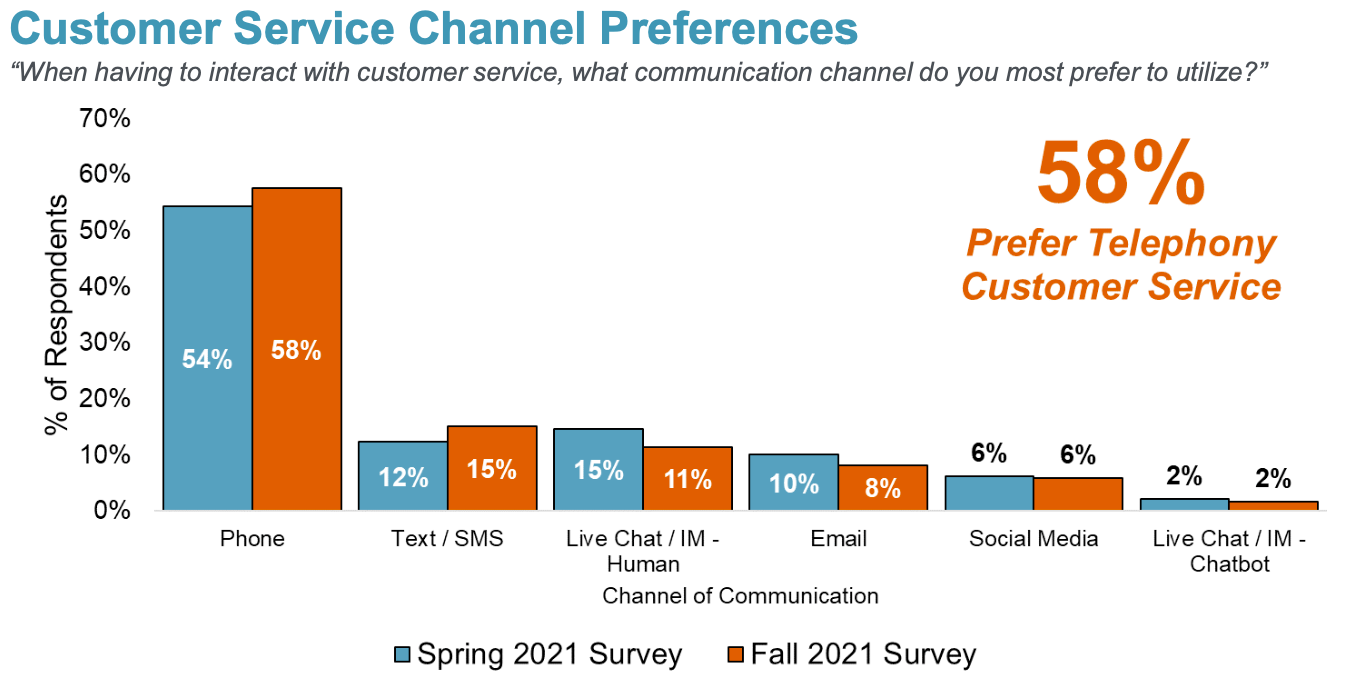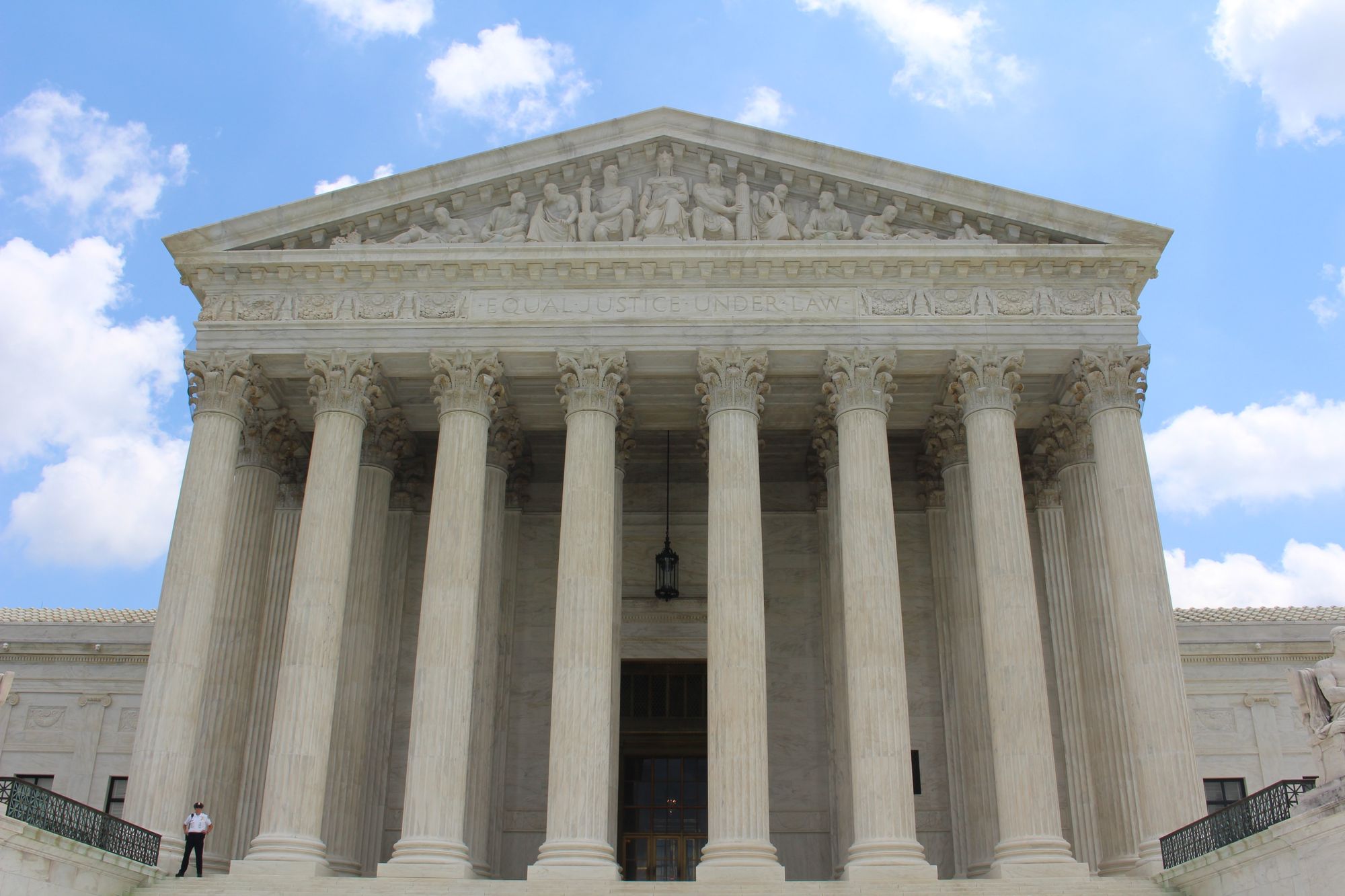Apple Search Revenues, Teen Brand Faves, Section 230 Reform Dangers

Privacy Rules Juice Apple Search Revenue
Is it just a coincidence? According to a Financial Times analysis, since the introduction of iOS 14.5, requiring users to opt-in to targeting and tracking, Apple's paid-search revenue has tripled. The FT says, Apple Search Ads "now drives 58% of all iOS app installations that can be tied back to paid ads – more than three times its 17% share a year ago." The rest of the industry has reportedly been rendered "blind" by Apple's opt-in requirement, which most users have adopted (said no to tracking). One estimate of the size the global app-install ad market is $118 billion. Apple's global operating system market share is either 14% or 26%, depending on the estimate. Any way you slice it, that's billions.

Our take:
- While Apple hasn't historically been concerned about ad revenue, it's paid-search ads are becoming a meaningful business.
- What Apple did for consumers with iOS 14.5 was game changing. But critics can point to this increase in revenue as evidence of anti-competitive intent.
- What should regulators do now? Should they seek to roll back consumer privacy protections to ensure more distributed app-install revenues?
For Teens It's Amazon, Apple and Snapchat
Investment firm Piper Sandler recently published its semi-annual teen survey. Respondents were basically 16 years old. The survey has 10,000 respondents. There's no coherent narrative emerging from the survey. It's a collection of questions about social issues, brands and shopping behaviors. There are a number of interesting findings, however. Among them, Venmo, Square's Cash App and PayPal are the top payment apps (only 13% common adoption), but most teens still use cash. PayPal leads for BNPL. Snapchat is the favorite social media platform but Instagram leads for engagement. Amazon is the favorite shopping site. Almost 90% of teens own iPhones, which will be their next phones too. Apple Watch is their top watch brand. And when it comes to customer service, contrary to what you might expect, teens prefer to use the phone rather than text or chat.

Our take:
- The Atlantic recently published an article about how generational differences were a myth. That may be but there are attitudinal and behavioral differences between young and old people.
- Youth surveys are useful so you don't extrapolate too much about the world from an insular older-person groupthink perspective.
- They're also valuable as a reality check on received assumptions and conventional wisdom: i.e., "Young people don't make phone calls."
Section 230 Reform and Unintended Consequences
There are a lot of new Congressional bills flying around, seeking to "rein in big tech." One of those, introduced last week, aims to remove liability protections associated with section Section 230 of the Communications Decency Act, which protects platforms from being sued for user-generated content. If it became law, the bill would enable people to sue Facebook, TikTok and almost anyone else that willfully or recklessly made "personalized recommendations" that "materially contributed to a physical or severe emotional injury to any person." (Let the lawsuits begin.) SMBs, search engines and internet infrastructure are specifically exempted. TechDirt discusses why the legislation is misguided. It makes multiple arguments; some are more thoughtful than others. The larger point is there are potential unintended consequences, such as empowering Facebook vs. new competitors.

Our take:
- Legislators, usually well-intentioned, often get it wrong. GDPR is just one example. It has helped reinforce Google and Facebook's dominance.
- New media and traditional media are held to different standards vis-a-vis section 230. That chasm should be closed.
- The current bill may be a poor, even unworkable, solution. But there should be reform to encourage better content moderation (not censorship) and minimize dis/misinformation and hate speech.
Recent Analysis
- Near Memo episode 36: Squarespace’s "Everything to Sell Anything," Google vs. Yelp's Lowe, and Does the Local Pack Need a Redesign?
- FTC to 700+ Brands: Deceptive Endorsements Will Lead to Financial Pain, by Mike Blumenthal.
Short Takes
- How the infinite Google mobile SERP scroll may impact ads.
- Amazon accused of lying before Congress.
- Amazon to hire 150,000 workers for holiday crunch.
- Uber and Lyft ads on top of yellow cabs in NYC.
- Facebook's AI misses most harmful content (WSJ), Facebook disputes.
- Moscow first to launch facial recognition payment system for metro.
- Amazon edges Walmart in five shopping preference categories.
- Walmart preparing to introduce text-based shopping.
- Las week, MindBody bought ClassPass in all-stock deal.
- Pinterest increasingly a travel search platform.
- Since 2018, 300 newspapers gone, circulation lowest in 80 years.
- NerdWallet points to Google ranking as material risk factor in S-1.
- MasterCard: SMB formation boomed (globally) during the pandemic.
Listen to our latest podcast.

How can we make this better? Email us with suggestions and recommendations.

